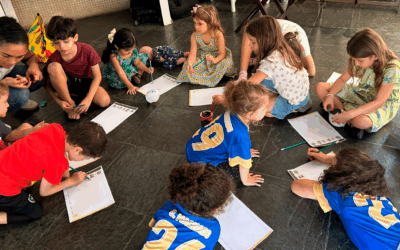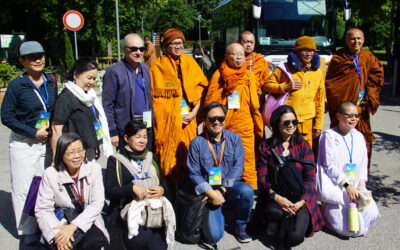 “When leaving Vienna I saw the pictures of Tahrir Square in Cairo. Arriving in Dakar a newspaper carried on its front page an appeal by an Imam to pray that the President Abdoulaye Wade would stand down. Let’s hope this just stays as prayer, I thought. The opening Mass for the World Social Forum was celebrated the next day in the Church of the Ugandan Martyrs. The homily from Cardinal Theodore-Adrien Sarr had a strong spiritual and social tone. Without mincing his words he denounced corruption, even though a governmental Minster and other public figures were present.
“When leaving Vienna I saw the pictures of Tahrir Square in Cairo. Arriving in Dakar a newspaper carried on its front page an appeal by an Imam to pray that the President Abdoulaye Wade would stand down. Let’s hope this just stays as prayer, I thought. The opening Mass for the World Social Forum was celebrated the next day in the Church of the Ugandan Martyrs. The homily from Cardinal Theodore-Adrien Sarr had a strong spiritual and social tone. Without mincing his words he denounced corruption, even though a governmental Minster and other public figures were present.
In this intense political atmosphere the 11th Social Forum opened in Dakar (6 -11th February). However, the opening march of 70,000 was conducted in a very orderly manner and was led to the University of Cheik Anta Diop. For the whole week there reigned a climate of support and fraternity, which didn’t falter even in the challenges caused by the organising of over 400 conferences and meetings daily.
One of these conferences was organised by transform!europe (a cultural network from the European left) and the Focolare. The title: “Crisis of civilisation: interpretations and alternatives from a Christian, interreligious and Marxist point of view”, showed that religion is no longer just tolerated but also wanted. Initiatives which ‘brought together’ were in evidence, that is those which showed collaboration between partners, albeit in a geographic sense or in the sense of how the world is seen. On the stage, speakers from the Focolare came from Italy, Austria, France, Ivory Coast, Guinea-Bissau and Senegal – Catholics and Muslims. From transform!europe Marga Ferre (Spain) and Walter Baier (Austria) were the promoters of the idea to prepare the event together. In her final thoughts Marga Ferrer shared: “I have learnt [through the Focolare projects] that solidarity starts with practical help, beginning with those most in need. Therefore no communism, no Marxism without this sense of empathy! The option for the poor is simple love for neighbour; I would say seeing the world through the eyes of those most in need.”
Then she continued: “We need an ethic and a new morality to develop dialogue about the meaning of life. No one can impose authority and carry out their idea and no-one can tell you what direction to take. We must increase dialogue, unite our strengths to change the ethic. And then, we need a political place and a change of economic legislation.”
She concluded: “We need real love, to make us able to work in politics, not just in a professional manner: that is knowing how to manoeuvre and work politics […] We need dedication. Without love no change to structure will succeed. Call it what we will: fraternity, love, solidarity.”
During the forum in Dakar, there was a growth in knowing and understanding between the Non Governmental Organisations present with the desire to continue to work and carry commitment together. The organisers would like “Dakar to spread” through Africa and the whole world.
Is this a thread of hope for the poor?
From Franz Kronreif




0 Comments